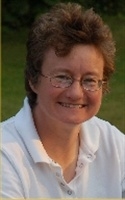Studying Public Health at WMS
Dr Wendy Robertson is the director of our Public Health course here at WMS. We met up with her to find out more about the course and the new modules that will be on offer to students from autumn 2017.
What do you think makes Warwick’s Public Health course different from other courses?
Our Public Health course has been running for over 10 years now and I think there are a few reasons why it’s special. Firstly, we have a wide range of modules to study. Students take four core modules and three optional modules (from a choice of nine) as well as completing a professional project, meaning they can study what is of most interest to them. This autumn will be an exciting time to join the course as we’re launching two new optional modules!
Secondly, our Public Health course is different in that there are no exams – students are assessed purely by assignments. This can include a range of different assignment tasks such as posters, presentations, written reports and press releases, which helps students develop the skills they need for a career in public health.
Thirdly, our course is aligned to the UK’s Faculty of Public Health Part A examination syllabus, which means that we are focusing on key public health knowledge and skills. Some students go on to take this examination.
Can you tell us a bit more about the new optional modules available this year?
The first new module focuses on a really interesting and important topic: global health. Students will have the chance to learn about key global health issues relating to health protection, heath improvement and health services and will be asked to consider possible solutions to global health issues.
The second new module is called ‘Pathways to the Public Health Workplace’ and is quite different because it will give students the chance to obtain work experience in a public health organisation. There will be an application and interview process for this one, but those who successfully apply will work on a real world, organisation-directed project over a flexible 12-week period. As well as receiving academic credit for their time spent with the organisation, they should be able to improve their employability and receive valuable feedback on their performance in the workplace.
What are the backgrounds of the students on the course?
I think one of the great things about the course is the diversity of our students. We have a mix of part-time and full-time students, from the UK and abroad and from a wide range of backgrounds. A lot of our part-time students are already working in public health, so they can share that experience with the rest of the cohort, which can be really valuable. It also means there’s a good environment in which to network.
Are there any other opportunities to network during the course?
Many of the modules have dynamic lectures from professionals who are working in the field of public health from organisations outside of Warwick for example from Public Health England and local authorities. Opportunity is therefore available on the course to engage with these lecturers.
The Division of Health Sciences runs a weekly seminar series, which our students are invited to - this is a good way to meet people from across the University and beyond. We also encourage linking up with IFSTAL (Innovative Food Systems Teaching and Learning), a community of over 400 postgraduate students studying food-related issues based at the Universities of Warwick, Reading, Oxford, City (University of London) and the Leverhulme Centre for Integrative Research on Agriculture and Health.
What support is available for those on the course?
We have an open door policy on the Public Health course - we’re always happy to meet with students to discuss the course or to answer any questions they may have. In terms of careers support, the University has a great careers service which can advise on applications for public health roles and offer tips on CV writing and interview techniques.

